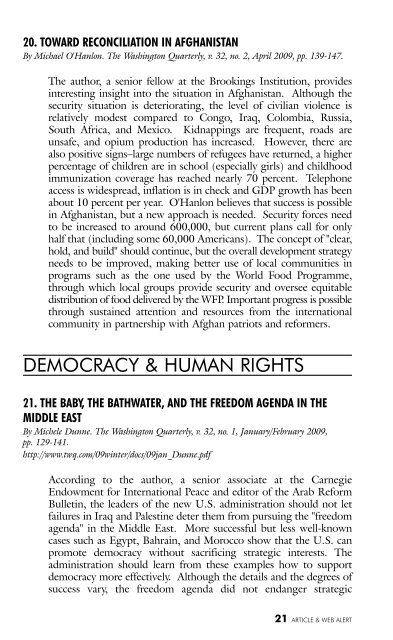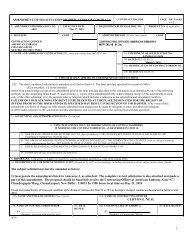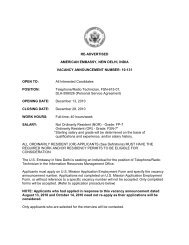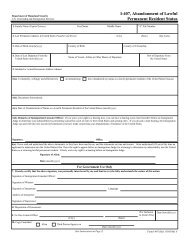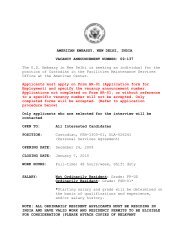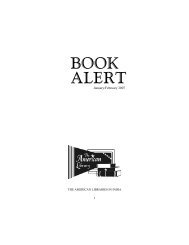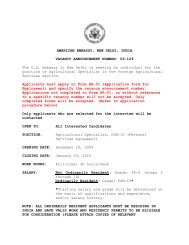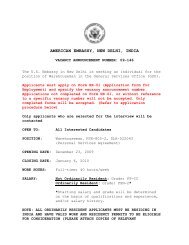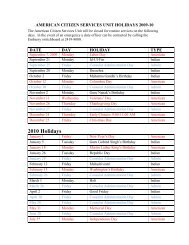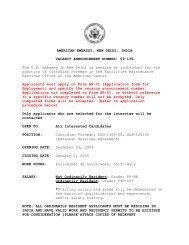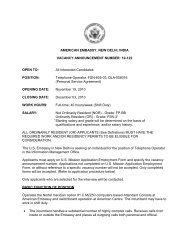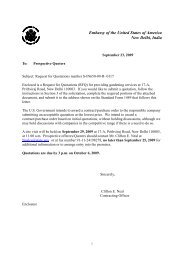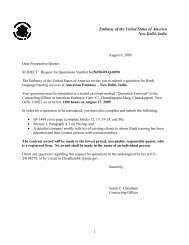Article & Web Alert (May/June 2009) - New Delhi
Article & Web Alert (May/June 2009) - New Delhi
Article & Web Alert (May/June 2009) - New Delhi
You also want an ePaper? Increase the reach of your titles
YUMPU automatically turns print PDFs into web optimized ePapers that Google loves.
20. TOWARD RECONCILIATION IN AFGHANISTANBy Michael O'Hanlon. The Washington Quarterly, v. 32, no. 2, April 2009, pp. 139-147.The author, a senior fellow at the Brookings Institution, providesinteresting insight into the situation in Afghanistan. Although thesecurity situation is deteriorating, the level of civilian violence isrelatively modest compared to Congo, Iraq, Colombia, Russia,South Africa, and Mexico. Kidnappings are frequent, roads areunsafe, and opium production has increased. However, there arealso positive signs–large numbers of refugees have returned, a higherpercentage of children are in school (especially girls) and childhoodimmunization coverage has reached nearly 70 percent. Telephoneaccess is widespread, inflation is in check and GDP growth has beenabout 10 percent per year. O'Hanlon believes that success is possiblein Afghanistan, but a new approach is needed. Security forces needto be increased to around 600,000, but current plans call for onlyhalf that (including some 60,000 Americans). The concept of "clear,hold, and build" should continue, but the overall development strategyneeds to be improved, making better use of local communities inprograms such as the one used by the World Food Programme,through which local groups provide security and oversee equitabledistribution of food delivered by the WFP. Important progress is possiblethrough sustained attention and resources from the internationalcommunity in partnership with Afghan patriots and reformers.DEMOCRACY & HUMAN RIGHTS21. THE BABY, THE BATHWATER, AND THE FREEDOM AGENDA IN THEMIDDLE EASTBy Michele Dunne. The Washington Quarterly, v. 32, no. 1, January/February 2009,pp. 129-141.http://www.twq.com/09winter/docs/09jan_Dunne.pdfAccording to the author, a senior associate at the CarnegieEndowment for International Peace and editor of the Arab ReformBulletin, the leaders of the new U.S. administration should not letfailures in Iraq and Palestine deter them from pursuing the "freedomagenda" in the Middle East. More successful but less well-knowncases such as Egypt, Bahrain, and Morocco show that the U.S. canpromote democracy without sacrificing strategic interests. Theadministration should learn from these examples how to supportdemocracy more effectively. Although the details and the degrees ofsuccess vary, the freedom agenda did not endanger strategic21 ARTICLE & WEB ALERT


